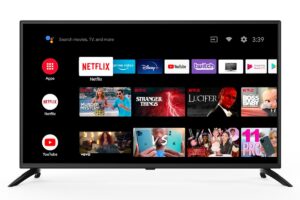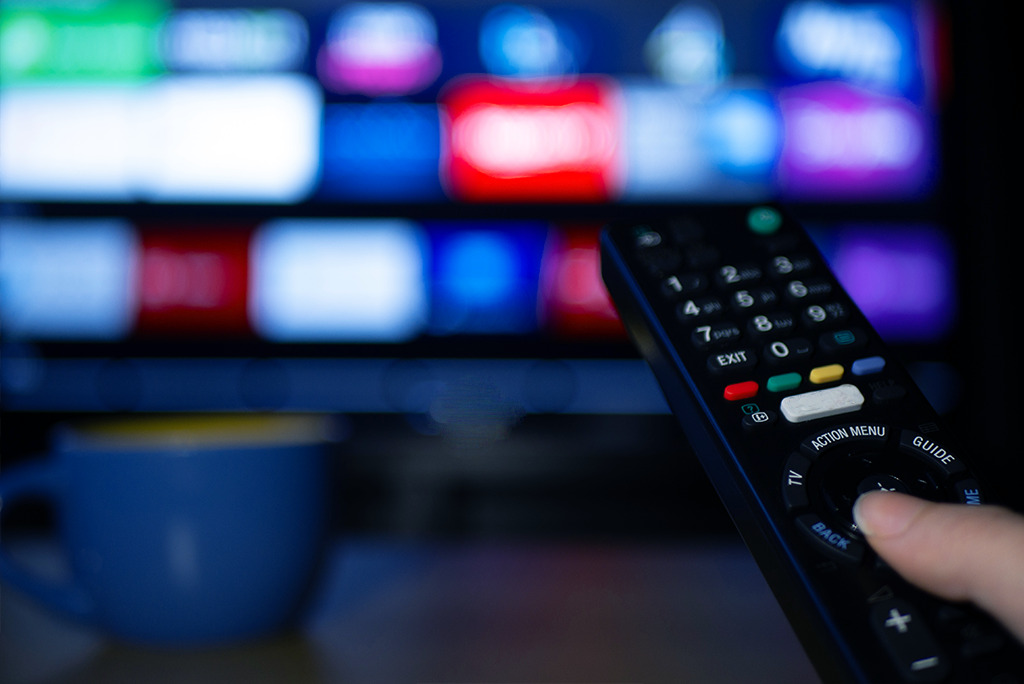Home technology, particularly televisions, has advanced rapidly in a very short period of time. We all want a nice, bright, glossy, and well-functioning TV at home, but the key question is what to choose. Kenyans, in particular, are not known for their extravagant spending habits, therefore we tend to choose the “cheaper” options.
The connectivity options available for these TVs are the fundamental difference between a digital TV and a smart TV.

Smart TVs are Internet-connected televisions that let users watch content from apps or websites like Netflix and YouTube. In the meantime, digital television has become the industry standard for conventional televisions. They can only access the Internet with the use of third-party devices.
The Difference between a Digital TV and Smart TV
- Internet Access

The ability to connect to the internet is perhaps the most important characteristic that distinguishes a digital TV from a smart TV. Smart TVs have the ability to connect to the internet and browse by default, whereas traditional digital TVs do not.
This does not, however, limit digital televisions to being gadgets that can only handle subscribing television channels. Virtually any digital TV with an HDMI port and appropriate screen quality can be transformed into an internet-capable device with the aid of supplementary OS-run devices such as the Android TV box and Amazon Fire Stick.
- Operating Systems
It’s not enough to add internet access to a regular TV set and call it a smart TV. Smart TVs, like computers and smartphones, come with an operating system preinstalled. It could be an open-source OS like Android or a closed-source OS like WebOS (LG). Only when there are stored apps that need to be loaded and performed does a TV’s operating system come in handy. There is no requirement for an operating system on a conventional digital TV because it just browses the channels aired by the service provider or operates as a monitor to display content from devices linked into its USB or HDMI ports.
- Quality
Only a few TV makers choose to pack top-tier features into a non-smart TV. Smart TVs, for example, typically have greater visual quality than standard televisions. But why is that? Shouldn’t non-smart TVs have access to the same benefits as smart TVs? Standard digital TV sets, unlike smart TVs, have a limited range of material from a variety of apps. Unless a TV is being used purely as a monitor, a higher-resolution screen is rarely required. This is because broadcasting stations’ channel quality frequently peaks at 1080p (Full HD). 4K channels are also accessible, however, in comparison to ordinary channels, they are insignificant.
Top TV manufacturers such as Samsung, Sony, and LG have shifted to smart TVs. They rarely create conventional digital sets any longer, and even when they do, there are rarely any updates, making such models obsolete.
- Ease of Use
Customers who buy smart TVs are expected to have at least basic troubleshooting abilities, despite the plethora of user manuals and installation tutorials. Unlike traditional digital TVs, where a remote with a number pad and volume buttons suffice, smart TVs feature a plethora of menus, user options, and settings that require some technical knowledge to explore.

Because remotes are more difficult to operate than keyboards, finding the content you want may be difficult. Every operation, from pairing Bluetooth devices to installing apps, necessitates human involvement. Users who aren’t tech-savvy frequently have to go through a lengthy process simply to watch their favorite shows, let alone deal with notifications and tweak settings.
- Cost
Smart TVs are fundamentally more complicated than ordinary digital TVs, which is why a sizable portion of the population still prefers the latter. However, from a manufacturer’s perspective, providing a TV without smart features is nearly always a cost-cutting strategy. A smart TV’s ability to connect to the internet is insufficient to make it marketable. RAM, processor, OS, screen quality, audio quality, refresh rate, remote usability, voice commands, and application support are all required. Smart TVs are more expensive than conventional digital TVs since the complexity of the technology involved is proportional to the price.
Final thoughts
While they may appear to be identical, digital TV and smart TVs are not the same. Smart TVs can connect to the Internet, allowing users to access apps and streaming services. They both have advantages and disadvantages that cater to distinct types of consumers with specific home entertainment requirements.
You can also read a related article we did about the Top 7 Best Samsung Smart TVs in Kenya to guide you best on what Smart TV you should get.


